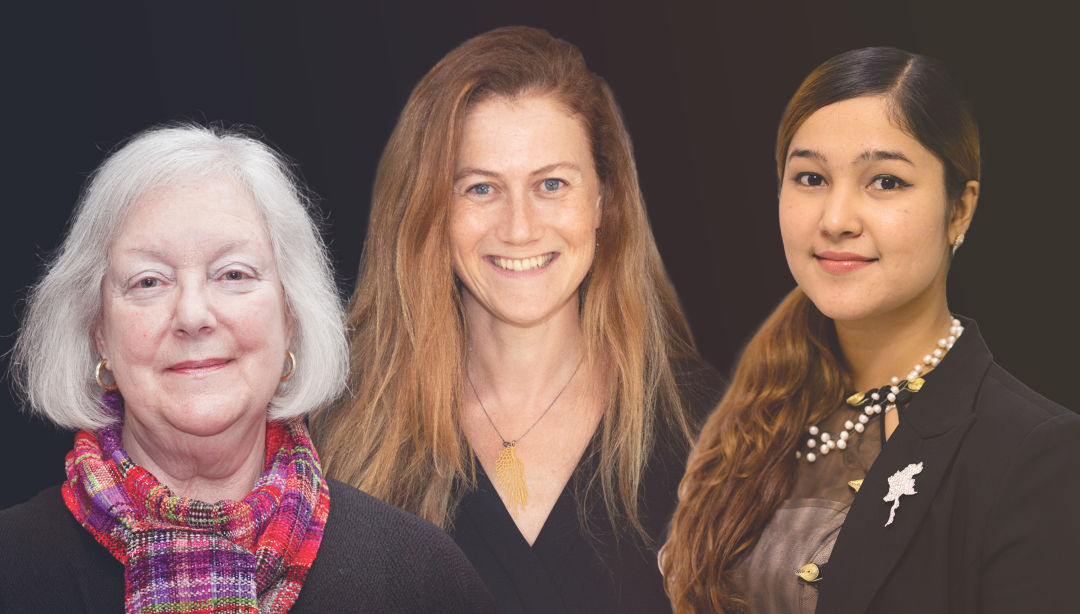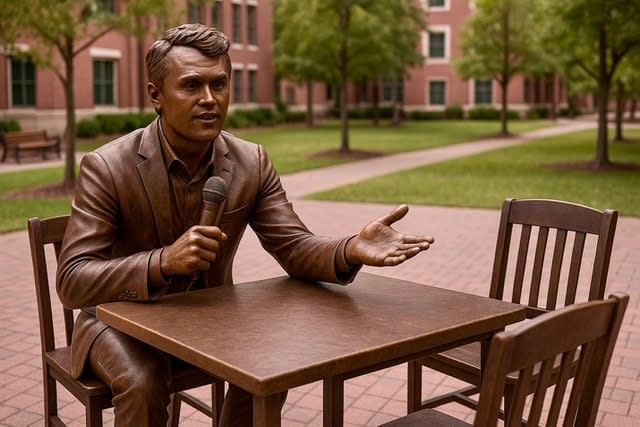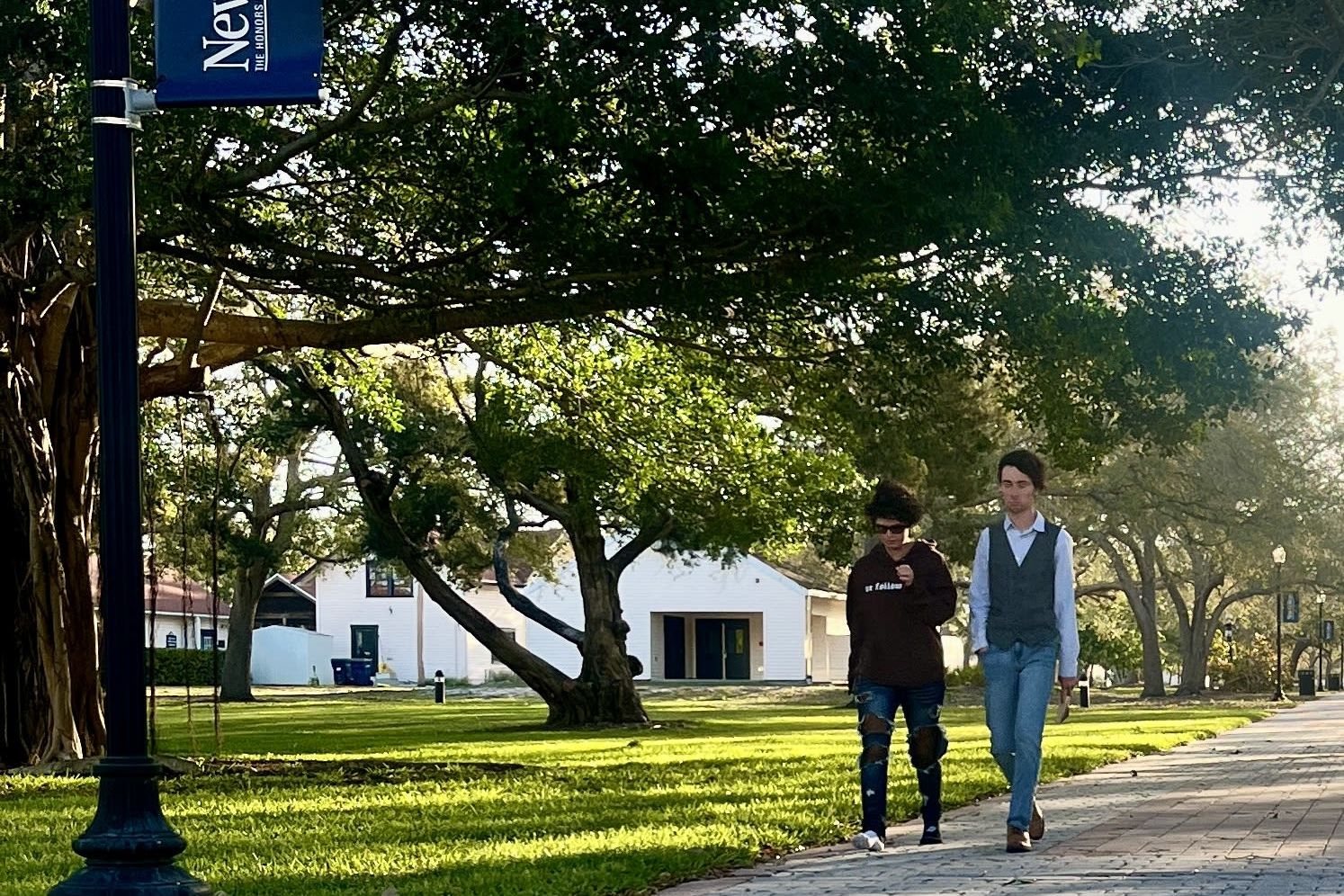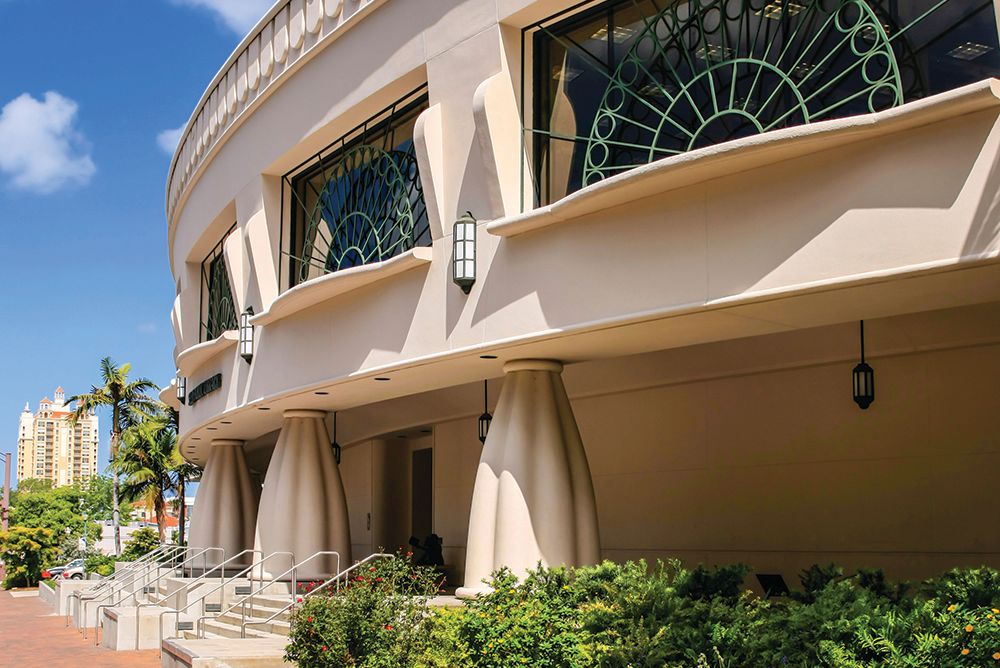New College Lecture Series Examines the Holocaust and Modern-Day Genocide in Myanmar

Holocaust survivor Louise Lawrence-Israëls (left) and Rohingya activist and survivor Wai Wai Nu (right) will speak with Naomi Kikoler (center) on Wednesday, Jan. 25.
On Wednesday, Jan. 25, New College of Florida’s “New Topics” lecture series continues with a discussion about the Holocaust and the genocide of the Rohingya people in Myanmar, also known as Burma. Naomi Kikoler, the director of the United States Holocaust Memorial Museum's Simon-Skjodt Center for the Prevention of Genocide, will moderate the discussion. Holocaust survivor Louise Lawrence-Israëls and Rohingya activist Wai Wai Nu will share their experiences of living through genocides occurring 80 years apart, and will explain how to prevent future atrocities.
Lawrence-Israëls spent her early childhood hiding from the Nazis in an attic in the Netherlands. Her parents did everything possible to protect her and her brother from the devastation outside.
“My brother and I thought that everyone lived in an attic," she says. When the family was liberated by the Canadian army, Lawrence-Israëls was 3 years old and afraid of an outside world that she had never experienced. “The Canadian soldiers gave us Hershey bars, and that did a lot of good," she says. Still, in the years to follow, her parents never spoke about the Holocaust or their religion in order to protect their children from possible violence.
While many Americans learned about the Holocaust as students, the Rohingya genocide is less well-known. The majority of Myanmar’s population is Buddhist, while the Rohingya are Muslim. Nu, a Rohingya woman who was targeted and imprisoned by Myanmar’s military at the age of 17, came to the United States to study and continue her activist work.
“The Rohingya are an ethnic and religious minority indigenous to the Rakhine state on Myanmar’s western coast, but since the 1970s, the country’s military has created a narrative that we don’t belong,” she says.
According to Nu, because Myanmar’s Buddhist military wanted to control the country, they needed to create an enemy of the state to incite fear.
“We are different in terms of our culture, language and religion,” says Nu, “so we became easier to single out and have been targeted by the military for many decades.”
According to the Burma’s Path to Genocide Exhibit at the United States Holocaust Memorial Museum, the Rohingya thrived as citizens of Burma, which gained independence from Great Britain in 1948. As teachers, elected officials and doctors, they formed part of the fabric of the new country. However, a 1962 military coup and subsequent dictatorship ushered in an era of violence and human rights violations toward the Rohingya that continues today.
“There are so many forms of violence, attack and abuse toward the Rohingya,” says Nu, who adds that the government has created policies that systematically strip the Rohingya of their citizenship and rights. “One of the biggest violations is the denial of the Rohingya name,” says Nu. “People can be arrested if they say they are Rohingya as this ethnic identity is no longer recognized by the government.”
The military government has revoked the Rohingya’s citizenship and instituted local orders limiting their freedom of movement and access to education, health care and economic opportunities. Marriage and childbirth are also restricted; Rohingya must ask permission to marry and can only have two children.
Government forces regularly check on Rohingya families by coming to their homes to take photos and make lists of family members. They make the Rohingya line up for photos, which even include animals, like cattle.
“It’s insane to put animals and humans together in the same list, and it’s extremely humiliating,” says Nu. She says that if an individual is not present at the house during the checking visit, security forces will delete the person's name and he or she cannot return without being arrested. The process occurs every six months.
“Forced labor, detention, extortion, torture and violence and rape against women have been part of the Rohingya’s day-to-day life for the past 30 years,” says Nu, “and since 2012 the violent attacks have worsened, restricting them from leaving their homes and having cell phones.”
Social media has also provided the government with a platform to spread messages of fear and violence against the Rohingya. In 2016 and 2017, the situation escalated, with massive clearance operations by the military, who burned down Rohingya villages and tortured or killed many residents.
More than 1 million people were forced to flee to Bangladesh, and the Rohingya continue to risk their lives to escape terror and persecution. In March 2022, United States Secretary of State Antony Blinken announced that the United States government recognized that Myanmar's military had committed genocide against the Rohingya. The announcement was made at the United States Holocaust Memorial Museum, with which both Nu and Lawrence-Israëls are involved.
“Eighty years later, the world has not learned its lesson and genocide has not stopped,” says Lawrence-Israëls. Recalling her childhood days spent in hiding, Lawrence-Israëls encourages everyone to speak up if they see something wrong. “Wai Wai can only speak in one place at once, and I can speak for only how much longer,” she says, “so we need everyone’s help to make a difference.”
The “Fleeing Atrocities: Witness Perspectives” lecture will take place from 5:30 to 7 p.m. at New College of Florida's Sainer Pavilion, 5313 Bay Shore Road, Sarasota. Tickets are free for students, faculty, staff and Holocaust survivors, and are $10 for all other attendees. Seating is limited, and everyone must register here. A virtual livestream of the lecture will also be available for those who sign up. (Attendees will receive a link and password to view the stream.) Attendees are also encouraged to visit the United States Holocaust Memorial Museum’s online exhibit, Burma’s Path to Genocide, to learn more in preparation for the lecture.



